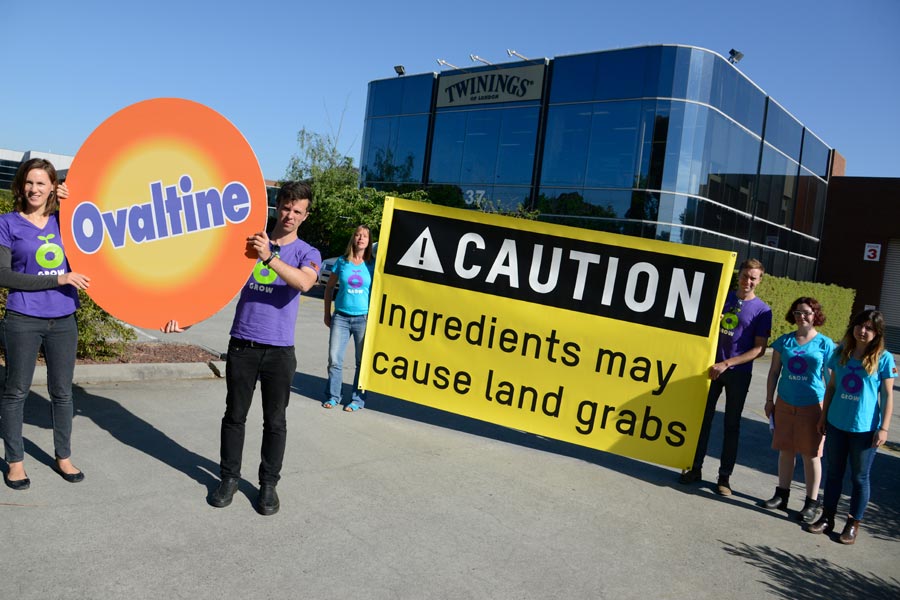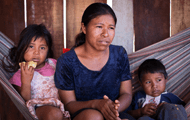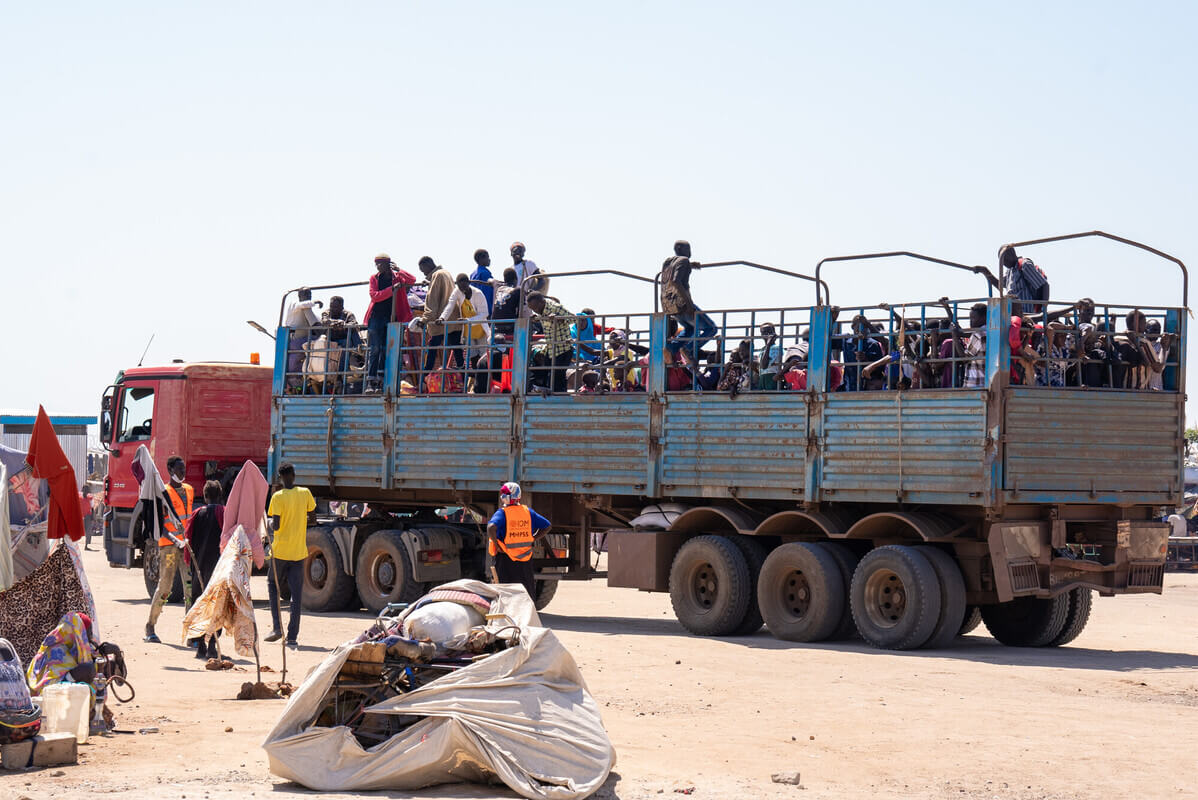Associated British Foods (ABF), which owns brands like Twinings, Ovaltine and TipTop, are the biggest sugar producer in Africa. In the lead up to their Annual General Meeting Oxfam visited Twinings’ Australian headquarters and asked them to implement a zero tolerance approach to land grabs in its supply chains.
Oxfam campaigners visited Twinings’ headquarters in Melbourne this week and delivered a petition, signed by over 265,000 people, asking Twinings’ parent company ABF to commit to a ‘zero tolerance’ policy on land grabs throughout its networks of suppliers.
The Twinings action is part of our Behind the Brands initiative, which is a part of our GROW campaign, which has been asking major food and beverage companies like Coca-Cola, ABF and PepsiCo to change the way they do business. Earlier this month, the world’s biggest sugar buyer, Coca-Cola, agreed to change their policies and now it’s time for ABF to get with our programme!
Join the fight for farmers’ land rights and ask ABF to take action now
Around the world the rush for land on which to grow sugar is tearing communities away from their homes, and robbing poor farmers of their rights. An Oxfam investigation found that, in countries like Brazil and Cambodia, companies supplying sugar to Coke, Pepsi and other food and beverage giants had been linked to land grabs and conflicts affecting poor communities. Elsewhere, ABF – which has a majority stake in the biggest sugar producer in Africa – is reportedly linked to other unresolved land disputes.
Tomorrow (Friday 6 December), ABF are holding their global Annual General Meeting in London. Right across the world, thousands of people are taking action to get the message across to Twinings, Ovaltine and other ABF brands that they need to step up and join the fight for farmers’ land rights.
Join the campaign against land grabs. Add your name now.




